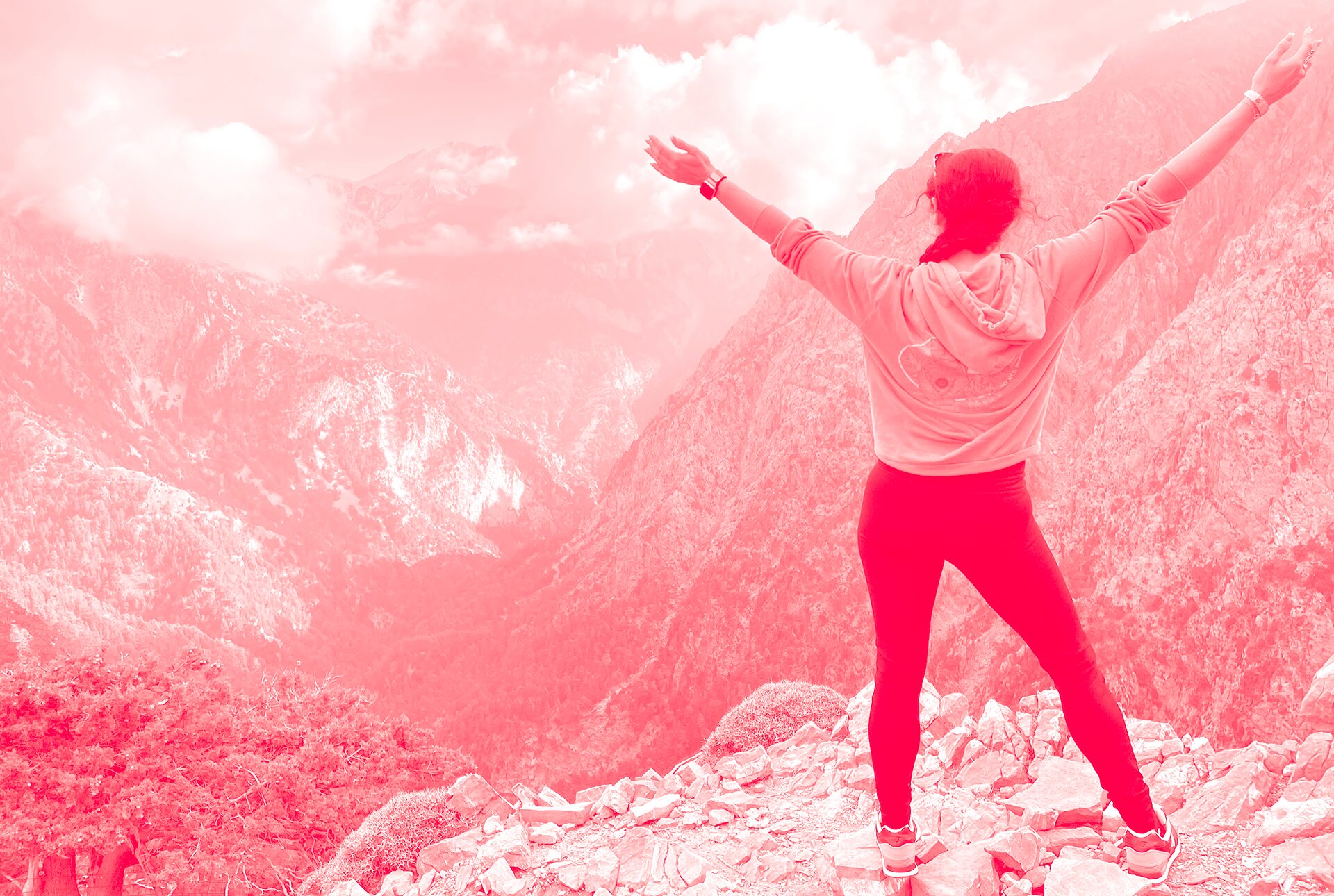Fear hides within us
We all go through times of great joy and others that are more difficult. For many, even in our joyful moments, there is a fear lurking within us. Like the fear that this moment will end, or even the fear of lacking what we need. The anxiety of losing what we love or of not feeling safe. Fear is a universal emotion that everyone feels. It remains a natural reaction to situations perceived as threatening or uncertain. However, it is important to understand that fear never really goes away completely.
When I made the choice to travel solo, all sorts of concerns presented themselves. Those of loneliness, insecurity, financial uncertainties, etc. I first had to confront them and dissect them one by one. Mine and all those around me.
If we want to live in harmony, we must learn to recognize fear and face it. Dive into its heart and find its source. Our fears come from our need for control, our uncertainties and the unknown. If we bury them thinking that they will disappear, they will only expand inside each of our cells.
Understanding the nature of fear
In her book Feel the fear and do it anyway, Susan Jeffers notes three types of fears.
- External: linked to external events such as job loss or illness.
- Internal: linked to our ego and our beliefs, such as the fear of failure.
- Fundamental: linked to our perception of ourselves and the world, such as the fear of not being able to cope.
Different manifestations of fear
It manifests itself in different ways: emotionally, physically and mentally. Here are some key points for understanding the nature of fear:
- Survival response: Fear remains an instinctive response of our brain to protect us from danger. It activates the fight or flight system, preparing our body to respond quickly.
- Uncertainty and control: Fear is often triggered by uncertainty and lack of control. We have apprehensions about the unknown and situations that we cannot predict or control. The past seems more comfortable to us, even if it is a source of suffering.
- Conditioning and Past Experiences: Our fears are often shaped by our past experiences and conditioning. Negative or traumatic experiences can reinforce and trigger certain anxieties.
- Beliefs and thoughts: Our beliefs and thoughts influence our perception of fear. For example, believing that we are not capable of coping with a situation can increase our fear.
- Emotional impact: Fear can cause intense emotions like anxiety, panic and stress. These emotions can paralyze us and prevent us from taking positive actions.
If we do not confront them, the impact of fears on our daily life and our freedom can expand and occupy a large part of our mental space. However, by understanding these aspects of fear, we can begin to develop strategies to manage and overcome it.
Emancipation through solo travel
Solo travel promotes independence. Having to make decisions quickly, on a daily basis, pushes us to be in the present moment. By encouraging action, we increase our self-confidence in the face of unforeseen circumstances. However, action remains the best antidote to fear. Little by little, stressful situations appear less worrying. Our brain recognizes fear signals, but understands that it can overcome them.
Action remains the best antidote to fear
Travel can help change perspective. Go from victim to creator of change. For example, by meeting others, we discover that all humans are similar, regardless of their experiences, their beliefs and their way of living. This allows us to learn empathy, among other things, and to stop being focused on our worries. And thus, opening up to the outside world. Travel is a practical exercise in getting out of your comfort zone.
Travel also allows us to learn from our mistakes and see them as a way to grow. Obviously, when faced with different situations, the choices we make are not always to our advantage. Reflecting on our past mistakes and admitting them without judging them is a good way to learn to know ourselves better and be more skillful and aware when challenges arise. on the other hand, every time we take a risk, we increase our capacity to manage future challenges.
During my two years of traveling around the world, I had to face a few situations where I sometimes got myself into trouble.
I think about that time when I booked a flight to Sri Lanka from Nepal. We often want it to cost us as little as possible, so I took a discount flight with a stopover in India. In the rush, I didn’t check, but I had to have a visa for India, even if I had to spend only two hours there without leaving the airport. In Nepal, they refused my boarding! Above all, by purchasing the ticket on an untrustworthy site, my card was hacked. However, the only way out was to buy a quick non-stop ticket at Kathmandu airport, which cost me $800. Luckily, I had a spare credit card.
My misadventure ended well. But I learned a lesson, it is better to pay a little more at the start, to have quality service and always have a plan B which takes a lot of weight off your shoulders when traveling. From now on, I am no longer afraid when an issue of this type arises.
Yoga, the powerful tool against fear
Yoga can be a philosophy of self-transformation. First by controlling the breath. By promoting conscious breathing, we become able to cope with whatever comes our way. Deep breathing techniques activate the parasympathetic nervous system, responsible for relaxation and rest, thereby reducing feelings of fear. Yoga can be a powerful tool for managing and overcoming anxiety by cultivating calm, self-confidence and resilience.
Reduced stress and anxiety
Yoga helps reduce stress, which is often the cause of many fears and anxieties. Also, postures, conscious breathing and meditation soothe the nervous system and reduce levels of cortisol, the stress hormone.
Improved body awareness
Regular yoga practice, such as Yin Yoga, improves body awareness, making it possible to recognize signs of fear and agitation in the body. This awareness makes it easier to manage and release these emotions. Mastering yoga postures and progressing in practice strengthens self-confidence. Moreover, this increased confidence can help overcome fears by making you feel stronger and more capable.
Cultivating mindfulness through meditation
Meditation helps cultivate mindfulness. First, by being fully present, we can observe our fears without judgment, which allows us to tame and understand them.
Deep connection between mind and body
Yoga promotes a deep connection between mind and body, helping to stabilize emotions and calm the mind. This inner harmony helps to dispel irrational fears and to become more anchored in the present moment.
Endorphin release and positive outlook
Yoga practices release endorphins, the feel-good hormones, which help combat negative feelings and cultivate a more positive outlook.
Moreover, by integrating these elements, yoga becomes a complete tool for managing and overcoming fears, promoting a more serene and balanced life.
My personal experience
After 13 years of practice, I therefore challenged myself to teach, I who have a disproportionate fear of speaking in front of a group. I begin each session with a call to conscious breathing. With our eyes closed, we find ourselves in a peaceful bubble. For a moment, the fear disappears.
Don’t wait any longer
Facing fear is within our reach. We can do it immediately, here and now. When we bring our attention back to inspiration, we do not think about this inspiration, we experience it directly. However, when fear presents itself, we can take the conscious action of refocusing on our breathing. This is already a first step towards freedom.
Once we know that fear never really goes away, we can face it with kindness and not ignore it. Finding its source first is a good way to strip fear of its power.
The people we meet can become a barometer for knowing where we are with our own fears and limiting beliefs. Also, listening to others remains an excellent way to grow.
Taking risks, trying something new or embracing change and taking action will always help you overcome fear.
What do you think about it ? Have you found ways to deal with your anxieties? Let me know your tips in the comments! I can’t wait to read you.





0 Comments